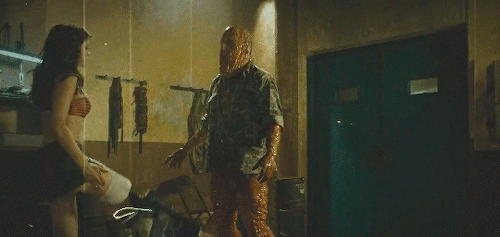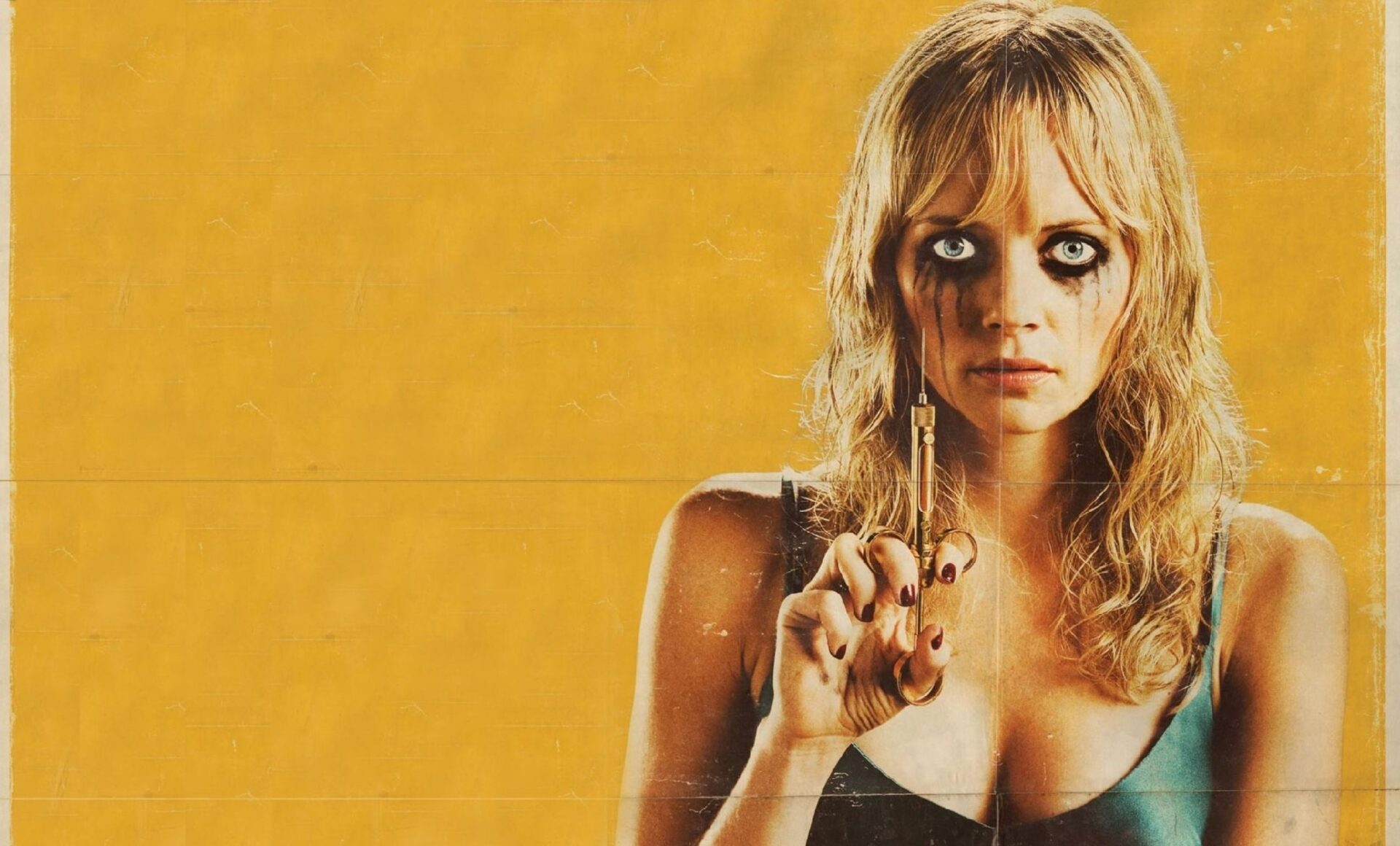By the time 2007 rolled around the zombie resurgence sparked by Zack Snyder’s 2004 Dawn of the Dead reboot had long begun to cool down. This was the same year 28 Weeks Later was released, as well as Diary of the Dead, I Am Legend, and – my personal favorite – Motorcross Zombies From Hell. Many assumed the genre was bound to die once more, but visionary filmmaker Robert Rodriguez proved that was not the case when he contributed Planet Terror to the double feature glory that is Grindhouse.
A decade later and Planet Terror remains a strong argument for why we need more boundary-pushing cinema. Like the exploitation films of the 1960s and 1970s that inspired its creation, there is not a frame of Planet Terror that shows any signs of aging. If anything, it is frozen in time, remaining an unmatched exercise in the possibilities of unbridled creativity, specifically that of the horror variety, that will no doubt continue to gross out unsuspecting audiences for decades to come.
Set in a rural Texas community that unknowingly becomes host to the zombie apocalypse, Planet Terror follows a go go dancer named Cherry Darling (Rose McGowan) as she and a group of equally unlikely survivors face off against a rogue military unit (lead by Bruce Willis). The undead, referred to here as ‘Sickos,’ develop a blood lust and pulsing blisters after coming in contact with a poisonous gas that is released into the atmosphere at the top of the film. Along with her ex-boyfriend El Wray (Freddy Rodriguez), a bisexual anesthesiologist named Dakota (Marley Shelton), a chemical engineer named Abby (Naveen Andrewsy) who collects the testicles of his enemies, and a host of soon to be disposed of townspeople, Cherry battles her way through the infected in hopes of getting away alive. She even loses a limb, her right leg, but it is quickly replaced by a high-powered rife with grenade launcher attachment.

All the signs that point to Planet Terror being a love letter to exploitation are found within minutes of the movie’s opening. The scratched look of the film itself harkens back to the way prints of grindhouse films often looked after months or years of use. The tone is decidedly dark, with an ever-so-slight sense of nihilism running throughout that allows for every character to speak and act without a filter. There is no subtext, just aggressive text, and it’s peppered with a wide array of expletives and sexually-charged slang that further brings to light the way each main character has been exploited by the world around them. Cherry, for example, is forced to dance in skimpy outfits for strangers with tears in her eyes under the watchful eye of a boss who complains about her depression rather than helps it. He tells her “it’s go go, not cry cry” when she brings up her personal misery and scoffs at the thought of her being anything other than his employee.
Likewise Dakota, who is constantly victimized by her abusive husband at the top of the film, is initially shown to be paralyzed with fear whenever a confrontation would arise. She wants to revolt, but she’s too concerned for the well being of herself and her only child to make a change. Just like Cherry, it takes the end of the known world for Dakota to find a way to access the strength that she knew she had all along, but once discovered she becomes an unstoppable force that will stop at nothing to fend off the horde of sickos that seem to be following her every move.
For every wrong wrought upon the women of Planet Terror there is an opportunity for vengeance that exists in the film’s third act. Whether this means slaying an opportunistic rapist (played by Quentin Tarantino), or finally getting even with an oppressor, both Cherry and Dakota are afforded a chance to do what they should have done from the very beginning. It all matters very little in the big scheme of things however, as no matter what course the women chose early on would have still ended with the zombie apocalypse.

All great exploitation films have a nugget of truth at their center, and in the case of Planet Terror that bit of honesty is one wrapped in life’s cruelest joke. Regardless of when Cherry Darling and Dakota decide to take their lives into their own hands neither one could have been prepared for the coming zombie apocalypse. They could have done everything right from day one, even before the film began, and the rise of the sickos would have happened just the way it did in the film. We can control our own destinies, but only to an extent. The randomness of existence will always cause the best laid plans to go awry. The house, or perhaps a better word here would be the universe, always wins.
When Roger Ebert reviewed Robert Rodriguez’s debut feature El Mariachi in March of 1993, he professed his enjoyment of the then 23-year-old filmmaker by writing “I’m inclined to forgive him his excesses because they add to the exuberance of the film.” Better words to describe what makes the mind of Rodriguez one of the greats have never been written, so I will not attempt to do so here. Planet Terror succeeds in both celebrating and rejuvenating a long comatose genre of film with the same boundless sense of enthusiasm and fun that has always made his work stand out. His work embraces the boundless possibilities of creative freedom, pushing the envelope as far as it can go without sacrificing quality storytelling, and finds unique ground entirely his own as a result. That is the kind of filmmaker that we will always need more of, and we can only hope aspiring story follow his lead as we look toward the future of cinema.













